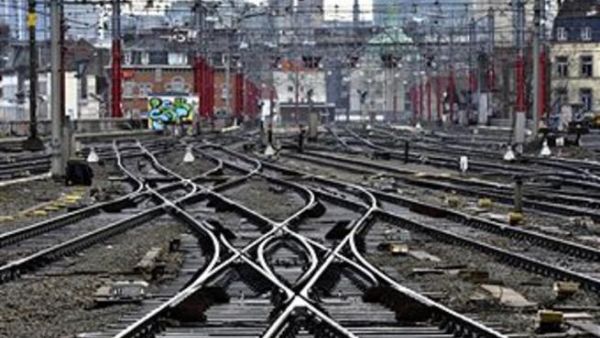Qatar is looking to complete the first phase of its railway project in time for the 2020 Olympics in the event it wins the bid to host the event.
The country has been on an accelerated programme to complete its inner city railway project before the upcoming Fifa World Cup 2022 and in time for the 2020 Olympics should its bid win, in order to accommodate the influx of visitors that will descend on the small country during the global events. “We were fortunate to secure the World Cup in 2022. Because of our ambition we also decided to bid for the Olympics in 2020. For our short term ambitions, the rail network has to cope with all of that,” said Geoff Brian Mee, Deputy CEO of Qatar Railway Company.
The Dh131.15 billion project metro system will be built in four phases. Phase 1A will aim to be ready by 2020 in time for the Olympics should they win the bid and Phase 1B will be ready for the World Cup in 2022. This phase will be 52km long and have 26 stations. Most of the track will be laid underground except for the suburban districts where it will be above ground.
Other states
Phase 2 will see the network extended to the greater Doha area and to neighbouring areas. Phase 3 will extend the network to the GCC via the Bahrain Causeway, a bridge proposed between the peninsula state and the UAE and via its land link with bordering Saudi Arabia.
“Qatar is a relatively small country compared to Saudi Arabia. Key areas are the Red Line which goes north and south along the coast, the Golden Line connecting east and west, the Green line which connects Education City and the Blue line will connect all the metro lines. Then we will look to connect all the ports and then expand internationally across the causeway to Bahrain and then to Saudi Arabia,” said Mee. Work on Qatar’s multi-billion dollar integrated rail network project is due to start this year.
“We will need to be testing commissioning between 2020 and 2021 and that completion time will be accelerated if we win the bid for the Olympics by 18 months,” said Mee.
The company will be holding a logistic and business opportunity conference in mid-February and they will be meeting with shortlisted bidders to a main contracts discussion and an exploration of the capability of those bidders in late February.
The Request for Proposals (RfP) will be issued for tunnelling contracts in early April and the major stations box contracts will be let out about the same time. Elevated sections for phases 1A and 1B will also be let shortly afterwards, according to Mee. “I anticipate a lot of interest. We had over 600 companies register with Qatar railways with the industry awareness event last year. We anticipate the same levels of anticipation this year,” he said.
The Qatar Railways Development Company was recently formed as a 51/49 joint venture between Qatari Diar, represented by QRC and DB International to build a national and international railway system. Investment in the new railway system also aims to alleviate conjestion as the population grows.
New population centre
“The railway system has a key role to play in population distribution and the creation of new population centres and that is what the proposals are for greater Qatar development with new cities being developed in the north and in the south,” said Mee. “We need a high quality transport system to persuade people to leave their cars at home and use public transport in an environment where there is little history in using public transport and everyone is wedded to using their land cruiser,” he added.
This comes as part of a larger investment plan for railways and roads within the GCC in the coming years. Accord to the Kuwait Financial Centre, Markaz, GCC countries will spend $79 billion between 2011 and 2020 on new road and railway projects. This includes the $30 billion GCC rail network which will begin from Kuwait and will pass through Saudi Arabia’s eastern city of Dammam, where it will connect to Bahrain through a bridge that runs parallel to the King Fahd Causeway before reaching Qatar via Salwa.








